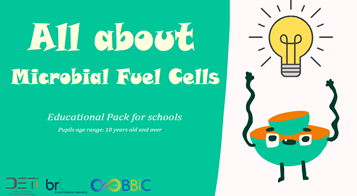Educational and socio-economics aspect of environmental science for sustainable city planning

This WG focuses on the relationship between education, technology and environment, as well as sustainable city planning.
WG Description
WG1 aims at understanding how education can help towards sustainable behavior and eco-citizenship. Studying the link between eco-citizenship with technology is important because innovation can help reduce the impact of human activity on the environment. Of course, it depends on: how technology is used and perceived, depending on different cultural contexts, the main goal being the acceptance of the BES. WG1 focuses on early education as well as on adult education. WG1 is organized in two tasks: WT11 Relation between education, technology and environment; and WT12 Sustainable City Planning.
aims or objectives
-
Understand differences in terms of eco-citizenship between different cultural contexts (Phoenix partners’ contexts).
-
To evaluate the social acceptability of alternative power sources such as BES.
-
To study to what extent the concept of smart city could be associated with the concept of sustainability, through the acceptability and use of sustainable technologies and source of energy.
Detailed description of the WG
To increase awareness of Bioelectrochemical Systems (BES), we need knowledge of the world that complements human understanding. Modern industrial technology has significant gaps in its knowledge as it is founded on a predominantly anthropocentric perspective that sets up a hierarchical relationship between human and nature. Findings from citizen science-led activities will develop an interrogative framework for an ecological epistemology capable of recognising specific forms of “information” and using these observations to develop testable principles for integrating non-human ways of knowing in the production, interpretation and synthesis of social/cultural insight and action that enables people to care for nature through the technical platforms they use. From design disciplines, social sciences, ICT and traditional sciences such knowledge practices can then be innovatively implemented and evaluated across a range of disciplines and applications through the direct channelling of the electricity as a primary “language” established between people and microbes. In line with the concerns of European Commission, WG1 activities fully take into account the issues of citizen involvement for the smart and sustainable cities through its multi-scalar, multi-spatial and multi-social dimensions. We believe in the benefits of bringing together the worlds of art, science and technology for the emergence of new social forms (related to the field of education). WG1 articulates several issues that are of great relevance to the educational sciences. EduBioCity is part of contemporary changes that concern partnerships between formal education (schooling) and non-formal education (e.g. associations, museums, art galleries…). Environmental and sustainable education are part of emerging curricular areas relating to, making education, STEAM, scientific culture, (virtuous) uses of digital technology, etc. Furthermore, Circular BioEconomy principles including bioremediation and environmental sensing is of great importance within WG1 activities. Owing to the flexibility of the BES platform, potential market opportunities are focussed on its uptake as a platform for the Circular BioEconomy, which can be customised by potential uptake audiences within sites as part of a targeted, integrated service and experience with significant Circular BioEconomy value to urban development. Citizen scientists key to the success of BES uptake, whose adoption becomes a product, service, experience, instrument of citizen empowerment and platform for environmental remediation that can be customised towards the needs of specific uptake communities.
WG Members
WG Leader: Dr Rawad CHAKER
Université Lyon – rawad.chaker@univ-lyon2.fr
| Member | Contacts |
| Ms Maria IMPEDOVO |
Aix-Marseille Université,
|
| Prof Ranka JUNGE |
Departement NGrüental
|
| Dr Shiri ZEMAH-SHAMIR |
IDC Herzliya
|
| Prof Snezana MALETIC |
University of Novi Sad
|
| Prof Slaven GASPAROVIC |
University of Zagreb
|
| Dr Pedro CARVALHO |
Aarhus University
|
| Prof Srđan RONČEVIĆ |
University of Novi Sad Faculty of Sciences
|
| Dr Rawad CHAKER |
Université Lyon rawad.chaker@univ-lyon2.fr |
| Prof Angela BARTHES |
Université d’Aix-MarseilleBd Charles
|
| Prof Minas ANGELIDIS |
National Technical University of Athens
|
| Prof Kiril BARZEV |
University of Ruse
|
| Ms Mona KHALIFE |
Lebanese University Forn Al chebek
|
| Prof Suzanne ABDUL-REDA |
LAES Clemenceau
|
| Dr Agisilaos ECONOMOU |
National Technical University of Athens
|
| Dr Ahmad EL-KHAROUF |
University of Birmingham
|
| Dr Pınar GÜLTEKIN |
Duzce University
|
| Dr Andrea PIETRELLI |
Université Claude Bernard Lyon
|
| Dr Lili-Ann WOLFF |
University of Helsinki
|
| Prof Frédéric DARBELLAY |
University of Geneva
|
| Dr Marco GISSARA |
Sapienza Università di Roma
|
| Dr Anne-Marie CEDERQVIST |
Halmstad University
|
| Prof Silvia CATALDI | silvia.cataldi@uniroma1.it |
| Dr Juris BURLAKOVS |
University of Latvia
|
| Dr Parisa GÖKER |
Bilecik Şeyh Edebali University
|
| Prof Tamas KOMIVES |
Plant Protection Institute
|
| Prof Etleva HAMZARAJ |
University of Tirana
|
| Prof Mateo GAŠPAROVIĆ |
Faculty of Geodesy, University of Zagreb
|
| Mr Marko JOKSOVIĆ |
Faculty of Medicine Krusevac b.b.
|
| Prof Marino BONAIUTO |
Sapienza Università di Roma
Dipartimento di Psicologia dei Processi di Sviluppo e Socializzazione |
| Ms Tatjana RAŞID |
Institute of Security, Defense and Peace
|
| Mr Miodrag ZARUBICA |
Faculty of Electrical Engineering
|
| Dr Pranas MIERAUSKAS |
Mykolas Romeris University
|
| Ms Anna VERSHININA |
KU Leuven
|
| Dr Rocio BARROS |
Universidad de Burgos
|
| Dr Zvi WEINSTEIN |
Israel Smart cities Institute
|
| Prof Dhimiter DOKA | dhdoka@yahoo.com |
| Dr David KATZ |
University of Haifa |
| Prof Maria RANIERI |
University of Florence
|
| Dr Stefano CUOMO |
Università degli Studi di Firenze
|
| Prof Kay-Uwe SCHOBER |
Mainz University of Applied Sciences
|
events
Publication
Khalifé, M., Chaker, R., & Gasparovic, S. (2022). Environmental Education and Digital Solutions An analysis of the Lebanese context’s existing and possible digital actions. Front. Educ. 7:958569.
EVENT
WG1 meeting in Lyon (France) in May 2022.
